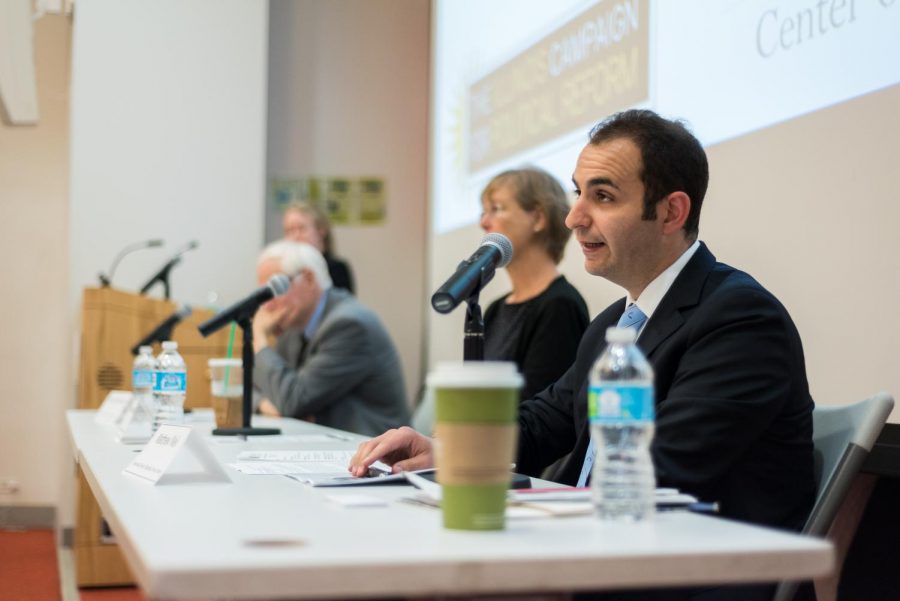Experts, voters in search for civility in politics
August 25, 2017
Political partisanship in the U.S. is close to Civil War levels, and both voters and elected officials have contributed to the conflict and share the responsibility to fix it, according to experts in civil discourse and bipartisan collaboration.
How to to increase civility in today’s political climate was discussed by an Aug. 16 panel hosted by the Illinois Campaign for Political Reform—a nonprofit organization that promotes campaign finance reform, government ethics and voter education. The panel was held at Columbia’s Ferguson Hall—600 S. Michigan Ave—four days after the violent “Unite the Right” rally in Charlottesville, Virginia, that left a 32-year-old woman dead and 19 others injured after an alleged Nazi sympathizer drove a car into a crowd counter-protesting a white supremacist rally.
“This week may be one of the most sobering weeks of the 21st century,” said James Leach, chair of the National Endowment for the Humanities. “We’ve seen a president of the United States try to capsulize his views of the circumstance, and they don’t fit most Americans. This is very awkward for our country.”
Leach said the nation’s partisanship is decidedly worse than in any other post World War II period but has not yet matched the pre-Civil War era.
“I don’t think there’s a time in American history where division is less warranted than today,” Leach said. “Yet it exists in more extreme dimensions than any one of us would have predicted.”
Cassandra Dahnke, co-founder of the Houston-based Institute for Civility in Government, agreed with Leach’s assessment. She cited “Civility and Democracy in America: A Reasonable Understanding,” a 2012 book by Cornell Clayton, a political science professor at Washington State University, which analyzed polarization in the U.S. and came to the same conclusion.
Despite the high volume and ease of access to news, people usually seek out information that reinforces their preconceived beliefs, said Matthew Weil, associate director of the Washington D.C.-based Bipartisan Policy Center. The current political environment has become tribal, Weil added, and people no longer use political parties to coalesce around a governing position. Politics have become more about opposing the other side simply because they identify with another party.
Leach, a former U.S. congressman from Iowa, agreed with Weil. He said people need to start reading blogs from opposing political viewpoints to obtain a better understanding of where others come from.
“Everybody in this room has access to news in every part of the world on an ongoing basis,” Leach said. “We have access that is sensational. We all have an obligation to take advantage of it.”
Asked to recommend solutions to today’s partisan politics by moderator Sarah Brune, executive director of the Illinois Campaign for Political Reform, Dahnke—whose organization hosts nationwide civility training seminars—encouraged audience members to engage with their elected officials because the loudest voices normally attract their attention.
“Members of Congress care what their constituents think and feel,” Dahnke said. “If the only ones they hear from are on the extreme, then that’s the ones they have to work with.”
Leach said local politics are typically more cooperative.
Dahnke agreed with Leach and said throughout her organization’s work, she has seen constituents and local elected officials eager to work toward civility and nonpartisanship.
Leach said federal elected officials need to remember their oath of office is to defend the U.S. Constitution as an avenue to political civility and nonpartisanship. Federal officials no longer sustain that oath and have misinterpreted their duty as supporting their team, he added.
“That’s not what the oath of office is about,” Leach said. “It isn’t your team vs. their team. It’s the national interest. I think people have lost track of what team they belong to.”








